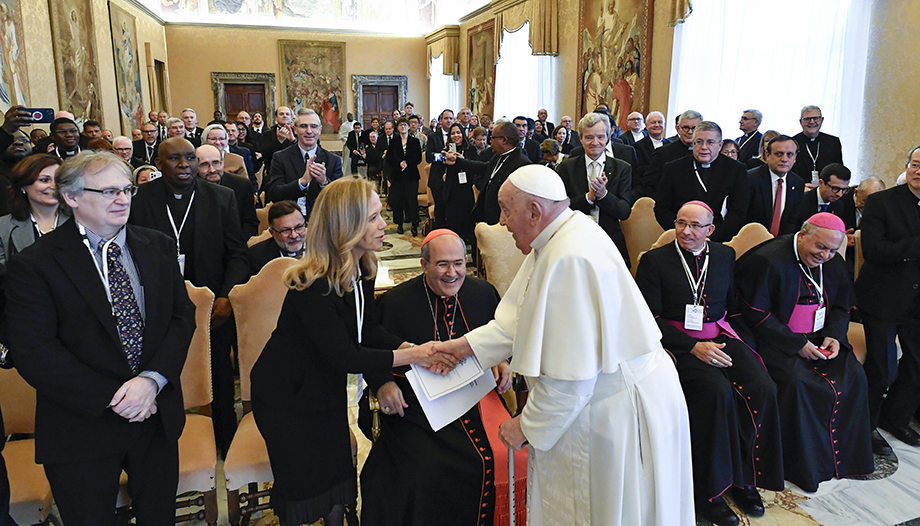Recently, Francis has held meetings with representatives of different Catholic universities. He met, for example, with a delegation from the University of Notre Dame (Indiana, USA), and before that with the Rectors and professors of the Catholic Universities belonging to the International Federation of Catholic Universities (FIUC). Finally, in mid-January, he addressed some reflections to the academic authorities and students of the Studium Biblicum Franciscanum in Jerusalem.
In the various meetings, the Pontiff underscored how Catholic-inspired universities have always played an important role in society, promoting the integral formation of persons in line with Gospel values. For this reason, he encouraged them to play an even more significant role in the contemporary world, reconciling the various souls of educational, cultural and social outreach commitment.
Union and collaboration
One of the main challenges the Pope assigns to Catholic Universities is to work together as a global network, to overcome fragmentation and promote more effective collaboration between institutions that, however, were born in different times and contexts.
In their vision, these universities should join together to share resources, knowledge and experience, going beyond the limits of their own institutions. Without forgetting the need to maintain contact with local communities, also contributing indirectly to the construction of a culture of peace and justice.
Christian humanism as a foundation
It is evident that at the basis of these institutions there is and must continue to be a Christian vision of humanism. It is not only a matter of offering a quality academic formation, as the Pope has emphasized on various occasions, but of cultivating each person in his or her integrity. Hence the importance of an education that integrates the intellectual, affective and spiritual development of students.
In essence, the Holy Father called attention to the fact that Christian education is not limited to the acquisition of knowledge, but aims to form people capable of living according to Gospel values, thus integrating faith and reason, and thus developing a deep understanding of the truth in order to then apply it in their daily lives.
Truth and the promotion of peace
This search for truth is also carried out through interdisciplinary dialogue and respect for the diversity of perspectives, striving to find solutions to global problems that are in harmony with all the teachings of the Church.
This certainly includes all efforts to promote peace: in a world marked by conflict and division, these institutions must be key actors in building a culture of reconciliation. This implies a commitment to social justice, respect for human rights and the promotion of the dignity of every person.
Commitment to the most vulnerable
Another central aspect of Pope Francis' vision for Catholic universities is the commitment to the most vulnerable. These institutions can be a beacon of hope for the excluded and marginalized, and ways and means must be found to reflect on how to combat, for example, poverty, discrimination and injustice. Likewise, there is the commitment to the environment and the protection of creation, another central element throughout Francis' pontificate.
As custodians of creation, these institutions have a responsibility to promote sustainable development and raise awareness of the environmental challenges facing the entire world.
Ultimately, only through a concrete commitment and a human-centered vision - this is Pope Francis' thinking in a nutshell - can these formation centers truly play a significant role in transforming society and promoting the better world that everyone hopes for.









